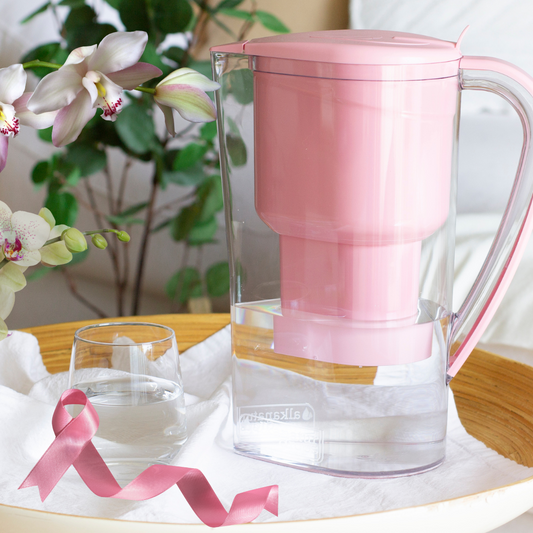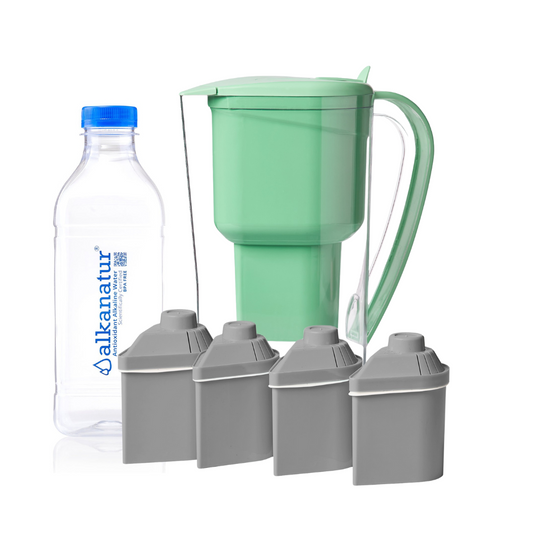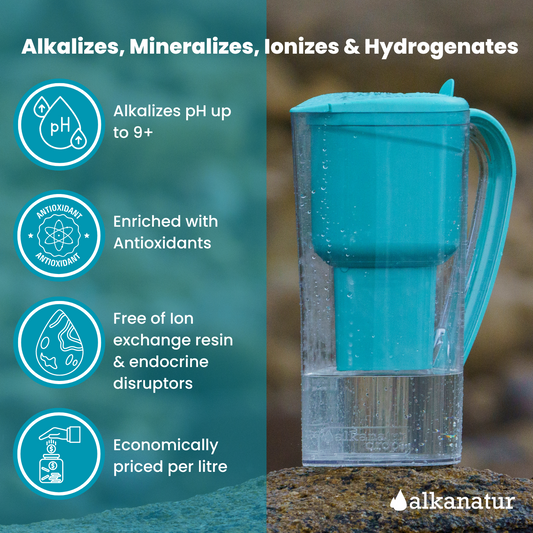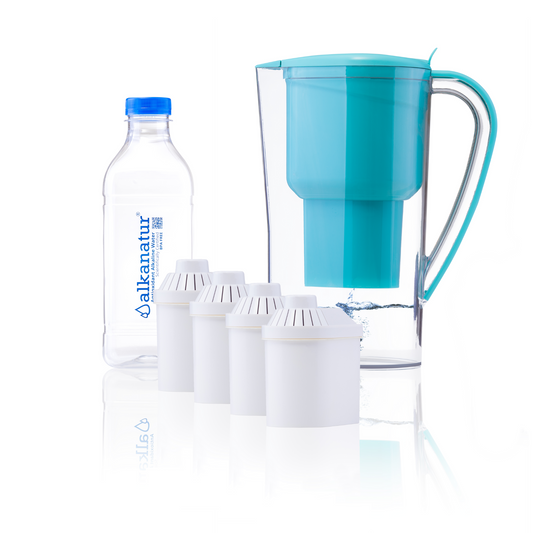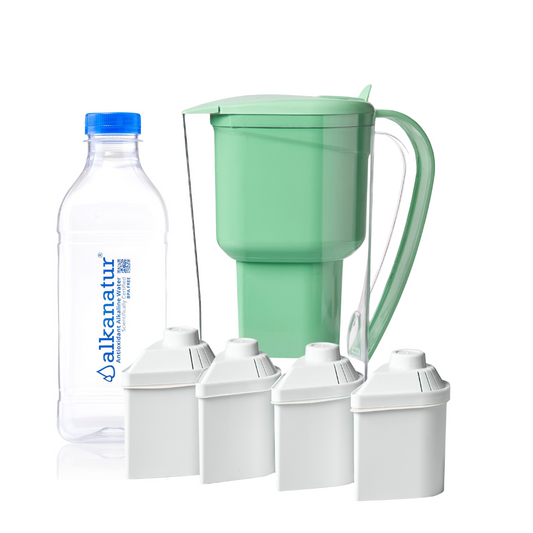The growing consumption of bottled water, despite its convenience, has severe consequences for both human health and the planet - and it's getting harder to ignore. Plastic bottles contribute massively to pollution. This waste disrupts ecosystems, and releases harmful toxins into the environment. That's why Alkanatur is on a mission to make safe water accessible. It's even toxic at the initial level, because drinking water that has been bottled in plastic contains microplastics and nanoplastics, which you ingest. It's also heavy and therefore carries a larger eco-footprint, where distribution is concerned.
While issues with tap water persist in certain areas, most high-income countries offer tap water that is safe, affordable, and eco-friendly. In contrast, bottled water regulations are often less stringent than those for tap water, and private companies are not always held to the same standards. Improving public awareness and investing in water infrastructure, especially in low-income countries, are critical steps to reducing reliance on bottled water.
Tackling Misconceptions About Tap Water Safety
Misunderstandings about the risks associated with tap versus bottled water regrettably continue to fuel the use of plastic bottles. It's essential to educate the public on the realities of the matter: in many regions, tap water is not only safer but also better regulated and considerably less harmful to the environment. However, some areas do continue to face contamination issues, which makes investing in water treatment infrastructure critical - but this is mostly an issue in developing nations. Using a filtration device, whether a pitcher like Alkanatur, a countertop unit, or another reputable brand is a better option than relying on bottled water.
The Urgent Need for Better Regulation
Bottled water is often perceived as cleaner or healthier, but the regulatory standards are generally laxer compared to tap water. Microplastic pollution is also a persistent problem, as particles leech gradually into the water, and then into our bodies. Stronger policies and regulations need to be enforced to ensure both the safety and quality of bottled water, and to encourage consumers to consider the environmental impacts of their choices.
Study Cited: Rethinking bottled water in public health discourse | BMJ Global Health
Alkanatur Alkaline Water Filter Pitcher with Magnesium & Antioxidants – Alkanatur North America
Alkanatur Replacement Pack High pH Alkaline Antioxidant Purified Water – Alkanatur North America



